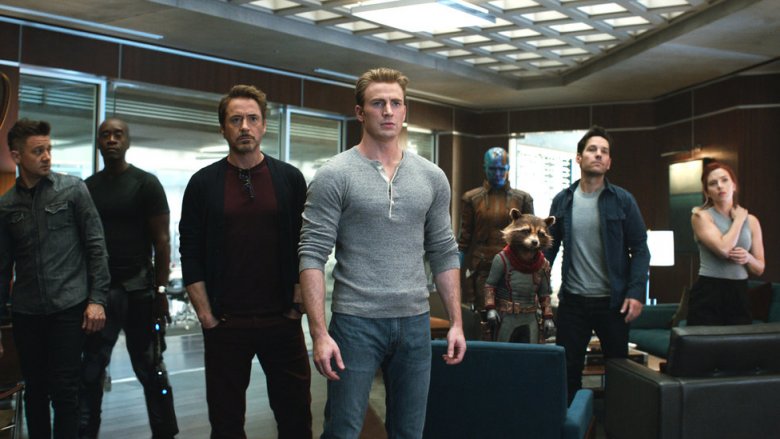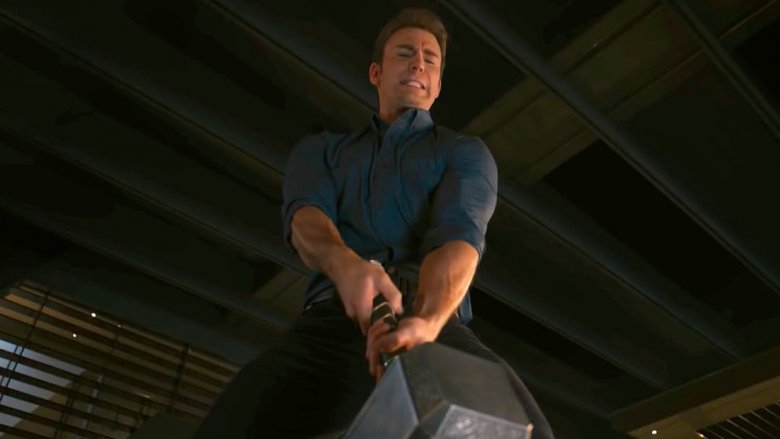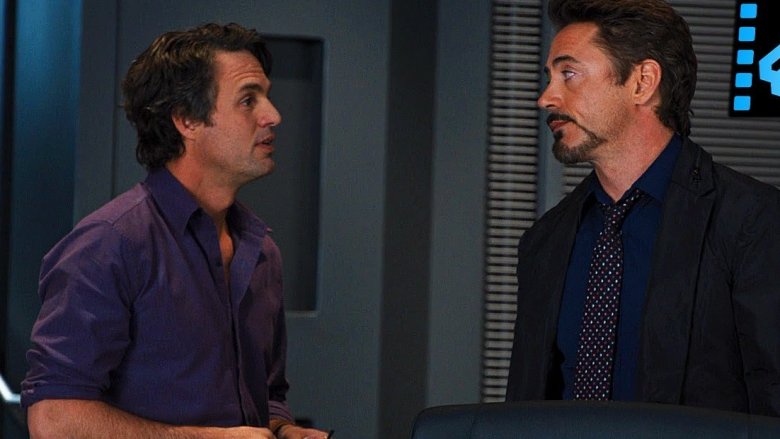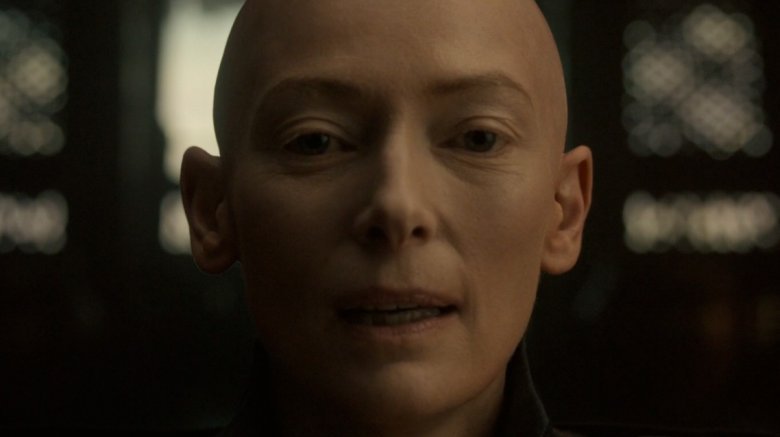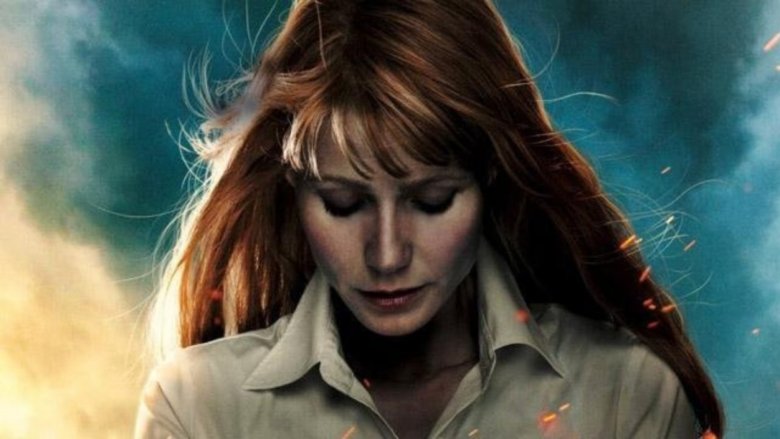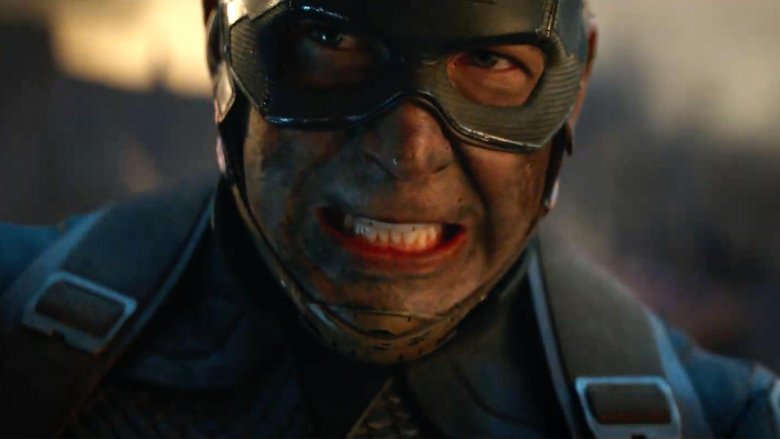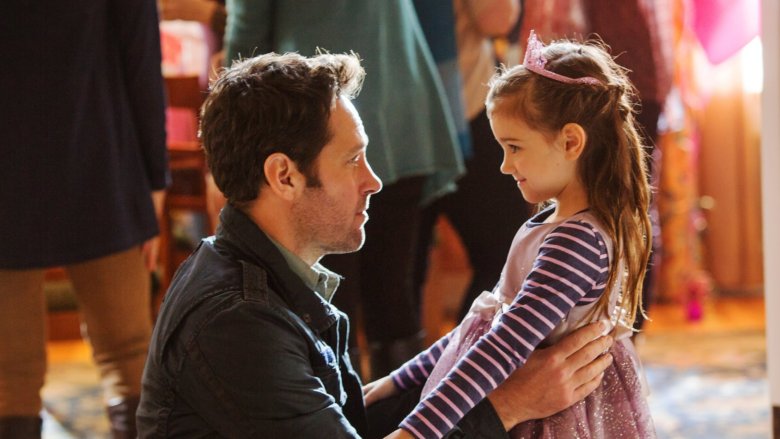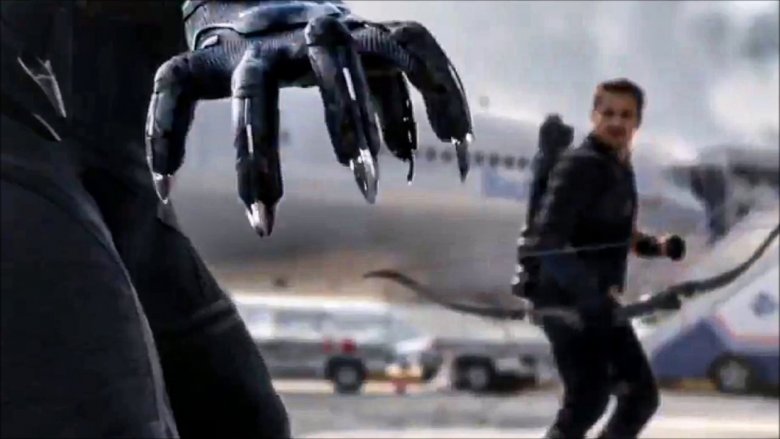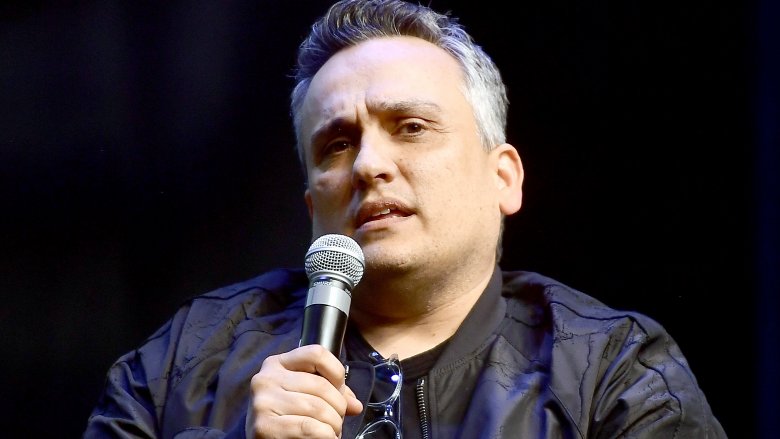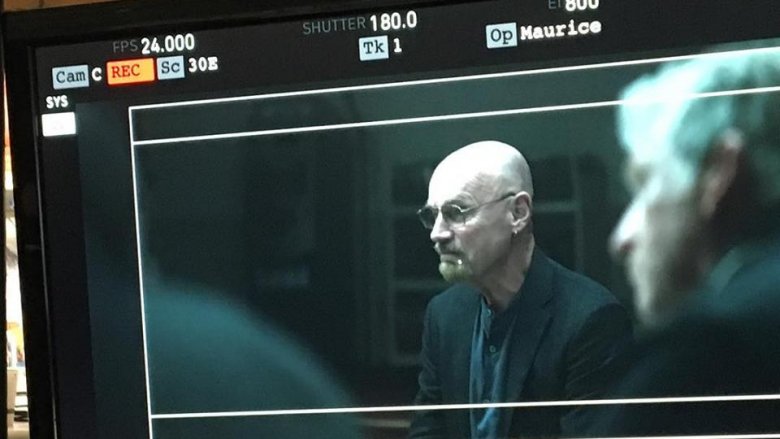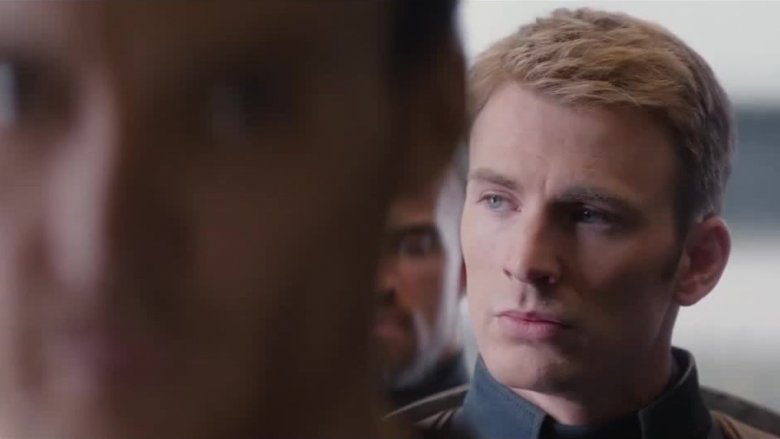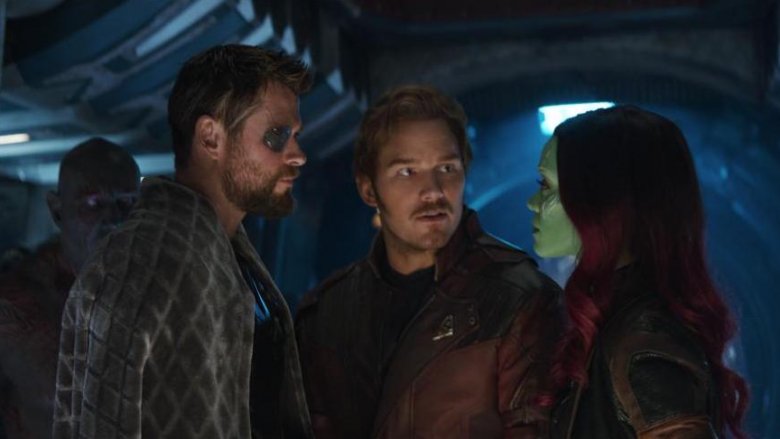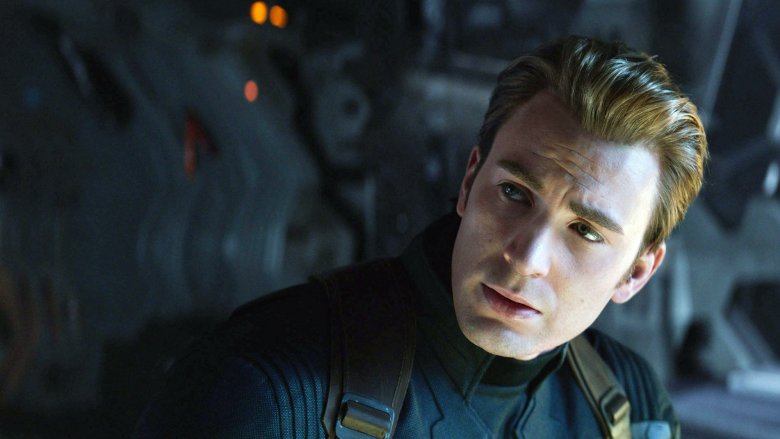Lines In Avengers: Endgame That Are More Important Than You Think
From the response Avengers: Endgame is getting from critics, it's likely it won't take much convincing to get a lot of fans to go back for a second viewing. One thing double-dipping fans are likely to notice is how often Endgame's dialogue — sometimes in subtle ways — refers back to earlier MCU films.
In many ways, Avengers: Endgame is a celebration of the history of the MCU — not just because it concludes the Thanos (Josh Brolin) storyline that has been building ever since 2012's Avengers or the heroic end it gives its first hero, Iron Man (Robert Downey Jr.). When Endgame takes it heroes through familiar scenes from previous entries like Avengers, Thor: The Dark World, and Guardians of the Galaxy, the film is commemorating the interconnected narrative Marvel Studios created, something unlike anything that's been seen before in cinema.
Another way Endgame hearkens back to what came before is through its dialogue. With allusions to previous MCU movies, references to comics that haven't made their way to the big screen, and a visit from a comic book creator not quite as used to cameos as the late Stan Lee, Avengers: Endgame reminds Marvel fans that the people behind the camera are just as enthusiastic as the ones filling the seats. Here are some examples of lines in Avengers: Endgame that were more important than you may have realized.
I knew it!
If you saw Avengers: Endgame in a packed theater, then in all likelihood the moment Thor's (Chris Hemsworth) hammer Mjolnir flies into Captain America's (Chris Evans) hand inspired one of the loudest and most enthusiastic responses from the audience. If not, then it's at least met with enthusiasm from Thor himself, who yells "I knew it!" as he spots Cap threatening Thanos with the legendary weapon.
So what did Thor mean by "I knew it?" In an early scene in 2015's Avengers: Age of Ultron, Thor gives the rest of the team permission to try to lift Mjolnir. Thor sits back, confident none of his mere mortal teammates will prove worthy to wield the hammer... until Steve Rogers gives it a shot. Cap actually manages to nudge the hammer the slightest bit — something that doesn't escape Thor's notice. He looks worried for a moment, until Cap can't lift it any further, and the thunder god laughs, "Ha! Nothing!" That brief nudge, and past comic book stories in which Cap has proven worthy of Mjolnir, left some fans theorizing that Cap could've lifted the hammer but chose not to in order to spare his teammate any humiliation.
Apparently, the Odinson was one of those fans. When Thor yells "I knew it!" he betrays that he thought Cap was faking way back in 2015 as well. And how couldn't he? Cap's as "worthy" as they come.
It's like... I was made for this
Speaking of Thor and what he may or may not be worthy to wield, the thunder god initially thinks he's the only one capable of using the new Infinity Gauntlet to bring back everyone Thanos purged in 2018's Avengers: Infinity War. The team argues about it and eventually it's the Hulk (Mark Ruffalo) who convinces everyone he's the only guy for the job, and as he does, it's made clear he's thinking about a conversation he had seven years before with Tony Stark.
In Avengers, as Stark and Bruce Banner look for a way to track the Tesseract, Downey brings up Banner's "Other Guy" and compares it to the Arc Reactor (which at the time was still the only thing stopping shrapnel in Stark's chest from killing him). Understanding that Stark is suggesting the Hulk saved Banner's life, Banner says, "That's nice. It's a nice sentiment. Saved it for... what?" Stark answers, "I guess we'll find out."
In Avengers: Endgame, he finally finds out what he was saved for. Explaining that he's the only one who can wield the Stones, that he's not sure he can survive using them, and that their radiation is mostly gamma — the same as the radiation that turned him into the Hulk — Banner says, "It's like... I was made for this."
Strange is meant to be the best of us
When Hulk goes back in time to 2012's Battle of New York, his assignment is to retrieve the Eye of Agomotto, a.k.a. the Time Stone. Instead of Doctor Strange (Benedict Cumberbatch), the Hulk finds the Ancient One (Tilda Swinton) waiting for him at the Sanctum Sanctorum in Greenwich Village.
Banner and the Ancient One argue over whether or not it makes sense for her to risk her own timeline by handing over the Stone. It's when the Ancient One learns that Strange gave the Time Stone to Thanos that she changes her mind. She tells Banner, "Strange is meant to be the best of us," as she gives him the Time Stone, meaning that she realizes her future student wouldn't surrender the Stone unless there was a good reason.
Considering what happens in 2016's Doctor Strange, the Ancient One's reaction is interesting. Four years from when she calls him "the best of us," she'll have Strange physically thrown out of Kamar-taj, only to let him back in hours later at the urging of Mordo (Chiwetel Ejiofor). You could call this a contradiction, but it could also suggest a lot more complexity to the early Sorcerer Supreme and her decisions. Did she expect Strange to come for years and wrestle with the decision of whether or not to let him in? Or perhaps — sensing Mordo's potential for turning on his allies — did she kick Strange out just to see what Mordo's reaction would be?
Trying to stop Tony
Shortly after Tony Stark figures out time travel — without seemingly even really trying very hard — he settles down on a couch with Pepper (Gwyneth Paltrow) and talks about what he should do next. He tells her that part of him wants scrap all his work, box it up, and drop it to "the bottom of the lake." The same Pepper who almost left Tony's employ in 2008's Iron Man over his armored adventures and who was ready to break up with him over his constant "tinkering" in 2013's Iron Man 3 clearly developed a sense of resigned acceptance since we last saw her, because her words seem to be what convince Tony to take his new innovation to the Avengers.
After listening to her husband, Pepper tells him, "Tony, trying to get you to stop has been one of the few great failures of my life." It's accurate, as anyone who has seen all the Iron Man entries can testify, but there's a bittersweet irony you don't see until the end of the movie's climactic battle. After Tony uses the Infinity Stones to wipe out Thanos and his forces, he collapses and struggles to hold on to what little life he has left. After first Rhodey (Don Cheadle) and Peter (Tom Holland) come and go, Pepper wills herself to smile at her dying husband and tells him, "You can rest now." And so he does. Finally and tragically, Pepper gets Tony to stop.
Avengers... Assemble!
When Captain America proves himself worthy of Mjolnir, it isn't the only time in the final battle that the old soldier has fans clapping and cheering. After the heroes Thanos purged in Avengers: Infinity War finally appear — along with the forces of Wakanda, Kamar-taj, and New Asgard — Cap takes his place at the head of this army of resurrected friends. He leads the charge against Thanos' dark forces with the line comic book fans have read so often, "Avengers... Assemble!"
You may not even realize it until that moment, but we've been waiting for over ten years to hear Cap say it. He may have lead the team in 2012's Avengers, but he never said the line. He teased us with it at the close of Avengers: Age of Ultron — we heard "Avengers!" but the second word, if spoken, was cut off by the credits (though Scarlett Johansson was nice enough to add it for him in the gag reel). When Cap says the line — if you hadn't realized it before — it suddenly occurs to you the MCU architects waited four films for that line, and man, was it worth the wait.
You're so big!
It's Emma Fuhrmann playing Scott Lang's (Paul Rudd) daughter Cassie in Avengers: Endgame — not the younger Abby Ryder Fortson, who plays her in Ant-Man and Ant-Man & The Wasp — but that doesn't stop Scott from recognizing her when he returns from the Quantum Realm. At the end of their reunion scene, Scott says, "You're so big!" It seems fairly obvious — and it's something adults say to kids all the time if they haven't seen them for a bit — but it has a double meaning understood by fans of the comics.
In 2004, the comic book version of Scott Lang was one of the fatal victims of Marvel's Avengers Disassembled event. In the wake of his death, his daughter becomes the hero Stature as part of Young Avengers. Like her father, she has powers that can make her smaller or bigger. In a tragic twist, Stature dies just as her father is brought back to life in 2010's Avengers: The Children's Crusade.
Thankfully, Cassie rejoins the land of the living and is reunited with her father in 2015's Avengers World #16 because, you know. She's a Marvel Comics character, so it's pretty much mandatory.
Clint! Give it to me!
After Thanos unleashes his assault on the Avengers compound, Hawkeye (Jeremy Renner) is the first to get his hands on the new Infinity Gauntlet. He holds onto the thing for a while, fighting off a swarm of Outriders and surviving an attempt to steal it by the 2014 version of Nebula (Karen Gillian). But once the purged heroes return and things get real, Hawkeye calls for help. The first hero to respond is Black Panther (Chadwick Boseman), who calls out, "Clint! Give it to me!"
It's not a particularly memorable line until you remember how these characters met, that they only exchanged two lines of dialogue before Endgame, and exactly what those lines were. In particular, their entire conversation was about Hawkeye's real name and how little it mattered, so it's kind of funny that's the name Black Panther uses in Endgame.
In 2016's Captain America: Civil War — during the airport battle and shortly after Ant-Man shocks the other heroes by turning giant instead of tiny — T'Challa advances on Hawkeye. The conversation that follows is short and to the point. Preparing himself for a fight, Hawkeye says, "We haven't met. I'm Clint."
The ruler of Wakanda bares his claws and responds, "I don't care."
I went out on a date
A scene with some of the most subtly important conversation takes place early in Avengers: Endgame. After Thor kills Thanos and we jump five years ahead, we find Steve Rogers leading a support group for survivors of Thanos' purge. The first person to speak is played by Endgame co-director Joe Russo. The grieving support group member tells the rest of the group, "I went out on a date," and he describes the evening; saying both he and his date seemed to feel awkward and emotional, and that both ended up crying at different times during the date.
More importantly, the grieving man refers to his date as "he," making him the first openly gay character to appear in the MCU so far. Shortly before the film opened, Russo told Deadline he and his brother/Endgame co-director Anthony felt it was important that one of them play the grieving man. Joe Russo told the site, "We felt it was important that one of us play him, to ensure the integrity and show it is so important to the filmmakers that one of us is representing that."
Anthony Russo said that while the fact that the character is homosexual will "get attention," narratively what's most important is how he reflects what's happened to the world because of the purge. Anthony called him an "everyman who has suffered from Thanos' act."
How about you?
Joe Russo's grieving man isn't the only MCU first in the support group scene. When Russo's character talks about how his date started crying when the salad arrived, another man in the support group — an older, bald and bearded man wearing glasses — leans forward in his chair and asks, "How about you?"
Pretty much everyone recognizes Stan Lee, but only eagle-eyed comic fans took particular notice of who that was questioning the grieving man. That was Jim Starlin, the creator of Thanos. Along with creating the Mad Titan, Starlin's one of the architects of Marvel's cosmos, having written and/or drawn cosmic series like Captain Marvel and Warlock, as well 1991's Infinity Gauntlet and the two series that followed it, Infinity War and Infinity Crusade. On his Facebook page, Starlin shared pictures from his film debut, telling fans, "[Script writers Christopher Markus and Stephen McFeely] and director Joe Russo were exceptionally open with me, and for that I sincerely thank them."
While it's regretful that a comic book veteran like Starlin was troubled enough by the purge to seek a support group, it is encouraging to learn that of all the bad things you can say about Thanos, he was at least considerate enough to spare his creator from the dust party.
Hail Hydra
One of the most well-remembered action sequences in 2014's Captain America: The Winter Soldier is the tense and eventually violent elevator scene, as S.H.I.E.L.D. operatives — who are actually Hydra agents — slowly fill an elevator Steve Rogers is taking, and the old soldier soon realizes he's walked into a death trap. Avengers: Endgame gives fans a scene acting as both sequel and prequel, as it takes place moments after Loki's capture in 2012's Avengers. S.H.I.E.L.D. agents including Jasper Sitwell (Maximiliano Hernandez) and Brock Rumlow (Frank Grillo) are transporting Loki's scepter when Captain America (the one from the future) intercepts them in the elevator. He's able to convince them to hand over the scepter when he whispers in Sitwell's ear, "Hail Hydra."
The line references the Marvel Comics storyline that introduced a version of Captain America who was secretly serving Hydra. This was extremely controversial, and Captain America: Steve Rogers writer Nick Spencer received death threats over it.
Hydra Cap is eventually defeated at the end of the 2017 line-wide event Secret Empire. Endgame also echoes that series when — shortly after getting the scepter — Captain America 2019 is forced to fight his double from 2012, just as the real Steve Rogers defeated his Hydra counterpart in Secret Empire.
Asgardians of the Galaxy
There are a lot of sad moments in Avengers: Endgame's resolution, but one of the funniest involves Thor and the Guardians of the Galaxy shortly after the God of Thunder hands off leadership of New Asgard to Valkyrie (Tessa Thompson). Boarding the Benatar with a heavy sack, Thor treats the space-faring crew as old friends. He slaps Star-Lord (Chris Pratt) on the back and says, "Asgardians of the Galaxy! Back together again!"
Thor's reference to "Asgardians of the Galaxy" is more than silly wordplay. In 2018, Marvel premiered the comic book Asgardians of the Galaxy, featuring Asgardian characters on a space quest. The most recognizable characters to MCU fans would be Skurge the Executioner (played by Karl Urban in Thor: Ragnarok) and a younger version of Loki, who begins the series hidden in the Destroyer's armor. There's also Valkyrie (a different version from Tessa Thompson's), Angela, Throg the Frog of Thunder (no, really), and the Thor-like Earth hero Thunderstrike.
Considering that Asgardians of the Galaxy premiered in the second half of 2018, Thor's line actually brings up a chicken-and-egg question of exactly who is referencing whom? Depending on exactly when the scene was filmed, is Thor referencing the comic in that scene, or was the conceptualization of the Asgardians of the Galaxy comic inspired by that line?
Moving on
Shortly after we see Cap leading his support group, he visits Black Widow (Scarlett Johansson) at the Avengers compound. He talks with his old friend about moving on from the purge, telling her, "I keep telling everyone they should move on. Some do... but not us. Not us."
Cap's talking about accepting the losses he and Nat have suffered rather than trying to find a way to reverse them, but there's a bittersweet irony to the line as the movie continues. By the time the credits roll, Captain America and Black Widow are two of the only characters who have — each in their own ways — moved on. Black Widow sacrifices herself to get the Soul Stone from Vormir, while Steve Rogers uses his quest to return the Infinity Stones to recapture the life he lost when he plunged into the ice in Captain America: The First Avenger.
To add another level of irony, both Avengers "move on" by acting more like the other. Nat commits herself to the kind of selfless sacrifice Cap is known for, while Rogers' recapturing of his life could be said to be the ultimate undercover operation.
